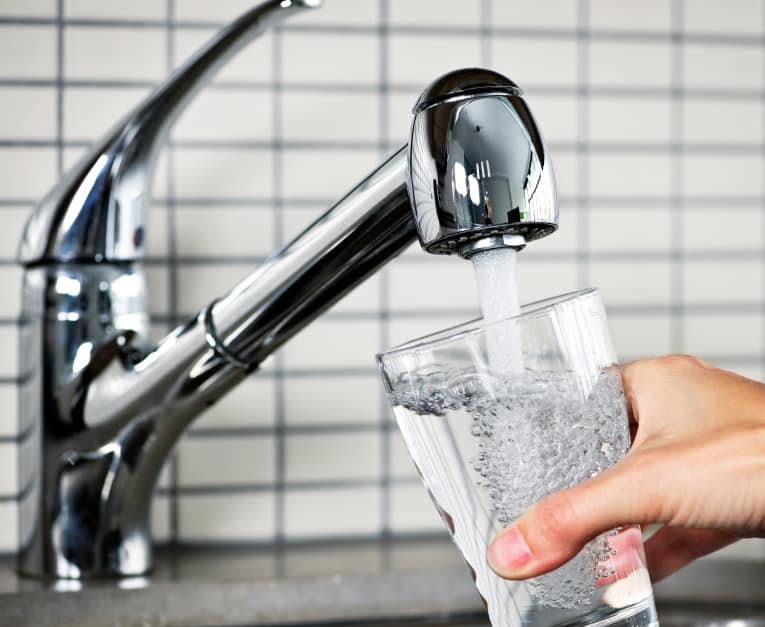Have you ever given any thought to the water you drink? If you’re like me, you probably didn’t think much about it for the first half of your life. It was always there, and you assumed all was well as you drank the recommended amount. But we might be wrong in our assumption that water is that simple.
My own wake-up call came when a notice was sent out to everyone in the community we used to live in—there were traces of lead in our water supply. Wait. Lead? In our water? That can’t be good.
And so began my self-education on the topic of water, something I never guessed would require my attention. Naive, yes, but like I said, I never gave it much thought—until I suddenly had to.
My initial research would’ve been so much easier if I’d been aware of the book Why Your Doctor Offers Nutritional Supplements. In it, author Stephanie Anderson refers to “The Seven Deadly Fallacies of the Western Diet.” One of these is the belief that the fluoride and chlorine in our water supply is safe—but they aren’t.
- Fluoride: Did you know that this contains a compound that, if it weren’t used in our water supply, would need to be disposed of at a hazardous waste facility? Here’s an informative video that lists ten facts about fluoride that everyone should know.
- Chlorine: It’s a well-known fact that chlorine is bleach, and that bleach causes oxidation, or corrosion. In his 1962 article, “The Progressing Totalitarian Takeover in the USA,” Dr. Royal Lee points out that the oxidizing nature of bleach “can convert food factor xanthine into synthetic alloxan, a diabetogenic poison so potent that a single dose can cause permanent diabetes in a test animal.” Hmmm. So bleach is used in our drinking water to kill the bacteria that causes water-borne illness. But while it may kill the bad bacteria in our water, it can also kill the good bacteria in our intestines. We all need this good bacteria to ward off pathogens, prevent bad bacteria from taking up house in our GI tract, and help breakdown foods so our bodies can absorb the nutrients. Dr. Joseph Mercola offers a free report on the safety of the solutions in our water supply that you may find interesting.
Anderson also shares a thought-provoking tidbit about water softeners. Because calcium bicarbonate is one of the compounds that contributes to hard water, it’s unfortunately filtered out by water softeners. I say unfortunately because calcium bicarbonate is also the most easily digested form of calcium for humans. And here we are trying to figure out the best way to get this nutrient into our diets.
So what kind of water should we drink? Lee wrote in his 1958 article titled “Ideal Drinking Water” that we’d all be better off if we had access to well or spring water that filters through the ground and therefore contains trace minerals our bodies need. As Anderson puts it in Why Your Doctor Offers Nutritional Supplements, “…unrefined water is a food.”
While growing up on my family’s dairy farm back in Wisconsin, I was lucky enough to drink the kind of mineral-rich water recommended by Dr. Lee. I gotta tell you, I remember that water—and it was tasty. But this definitely wasn’t the case when we got the notice about the lead in our water a few years back, and it’s not the case now. So what to do?
As suggested by Anderson in her book, we decided to look into a water filtration system that would remove the lead and other toxins from our drinking water, as well as the water we used each day for cooking, showering, and bathing. Our naturopath, who happens to live in our area, recommended a filtration system from this company as one of the most effective for where we live. Of course, another solution would have been home delivery of natural, and preferably local, spring water for drinking and cooking. There are also filters specifically designed for showering and bathing, including these. The important thing is to get a water analysis of your specific area and decide if you need to consider a filtration system and what type comes closest to giving you everything you need.
As you can see, water isn’t quite as simple as it may seem. What measures have you taken to make sure your family has access to the healthiest water possible?
Photo from iStock/Elenathewise



